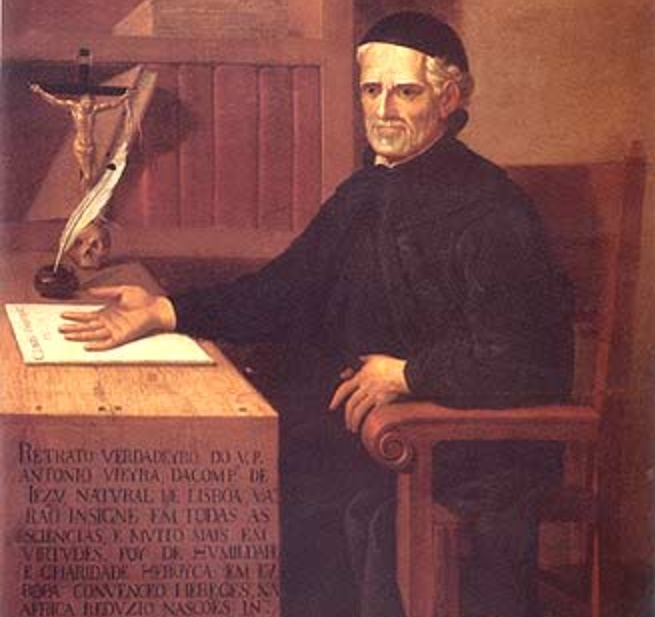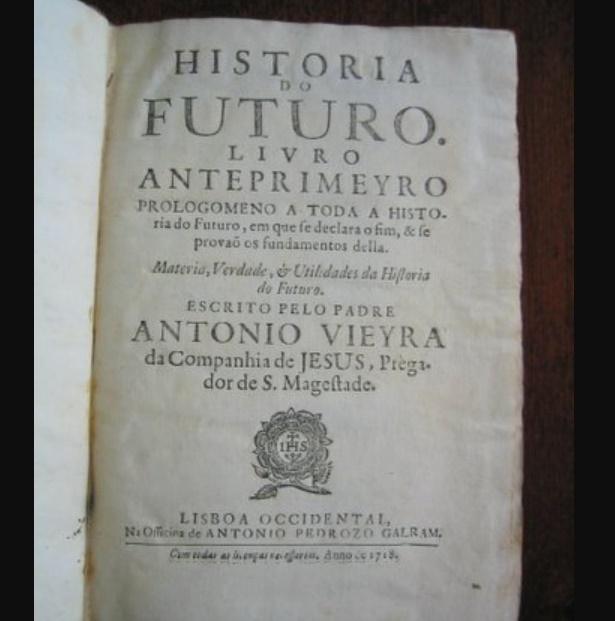Pedro António Vieira
Pedro António Vieira (6 February 1608 – 18 July 1697) was an Afro-Portuguese Jesuit priest, diplomat, orator, preacher, philosopher, writer, and member of the Royal Council to the King of Portugal.
António Vieira is considered one of the literary greats of the Portuguese-speaking world. The Padre António Vieira Chair in Portuguese Studies, at the Pontifícia Universidade Católica-Rio de Janeiro, was created on 7 October 1994, to train teachers and researchers in the social sciences. Promoting academic exchanges between Brazil and Portugal, the Chair's main aim has been to deepen the cultural dialog that already exists between the two countries within the university context. The Chair is involved in the training of teachers in the areas of Portuguese Literature and Culture, Portuguese Language, and Lusophone Literatures.
His works are possibly the most important monuments to Portuguese prose. Two hundred discourses survive to demonstrate his prolificacy, and his variety is demonstrated by the fact that he could approach the same subject differently on a half-dozen occasions. His letters, which are straightforward and conversational in style, have a deep historical and political relevance and serve as primary historical documentation for the period. Sermões (Sermons), História do Futuro (History of the Future), Cartas (Letters), Notícias recônditas do modo de proceder a Inquisição de Portugal com os seus presos (News on how the Portuguese Inquisition proceeds with its prisoners), and Arte de Furtar (The Art of Stealing) are among his most important works.
To commemorate the 300th anniversary of Father Vieira's death, Portugal issued a commemorative coin in 1997. In 2008, Portugal produced a stamp commemorating the 400th anniversary of Vieira's birth (1608). Brazil has already printed two Vieira stamps, in 1941 and 1997. On the initiative of the Holy House of Mercy of Lisbon, Portugal, a statue of Father António Vieira by artist Marco Fidalgo was unveiled in 2017 on the Largo Trindade Coelho near the church of São Roque.











